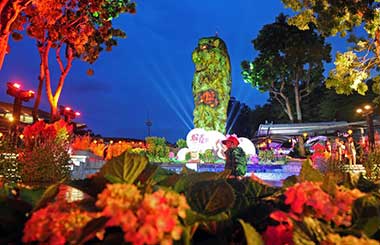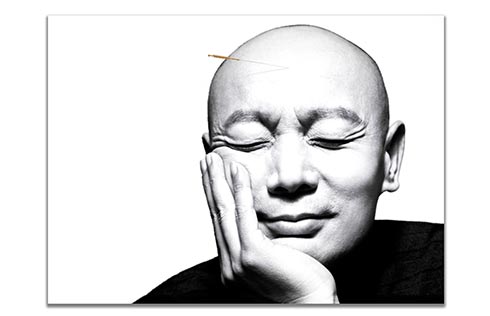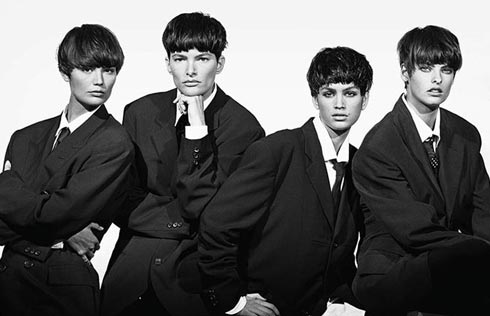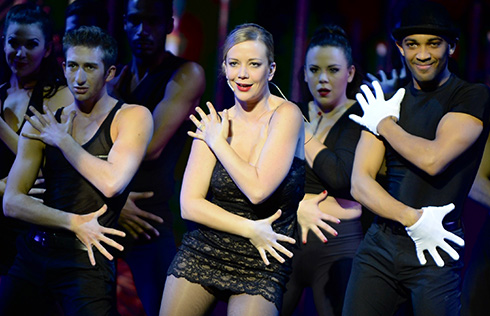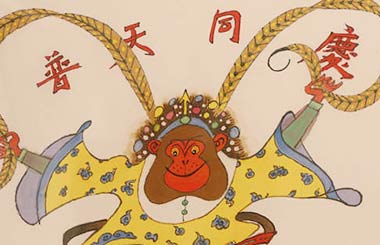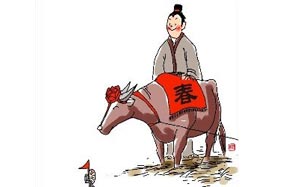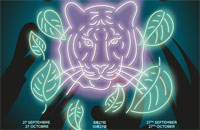Birds of a feather
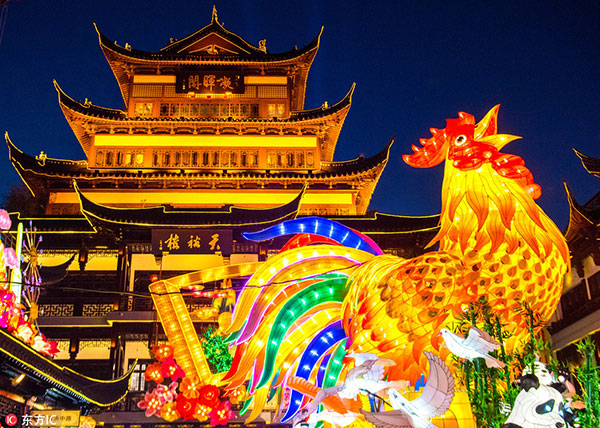 |
|
A rooster-themed lantern fair at Yuyuan Garden in Shanghai. [Photo/IC] |
Food or charm?
Of course, chicken has connotations beyond the gastronomical or bravery.Chicken Run, dubbed by Mel Gibson, epitomizes humans' pursuit of freedom. After it came to China, Chinese animators invented Kung Fu Chicken, but the series never really took off. The image of an enlarged, crimson comb is quite reminiscent of a colorful bonnet that belongs to a histrionic lady of aristocratic descent, but to compete with all the strutting animals on the Chinese screen, one needs more than an appealing head gear.
Even though the fowl is taken for granted, it gains its auspicious implications by sounding like good luck and inspiring the image of the mythological phoenix.
The crowing of the rooster heralds the break of dawn, thus driving away the evil spirits of darkness. Before the widespread use of alarm clocks, the rooster was a symbol of punctuality, giving rise to the quality of assiduity in the fable of an early riser who practices his sword dance whenever the cock crows.
The same application also engendered a story, later proven to be fictitious, of a cruel land owner who wakes his rooster at midnight so his employees must also rise and trudge to the muddy fields to start work. This tale, an analogy of class struggle, was drilled into every Chinese youngster in the 1970s to incite hatred for the wealthy.
Although it has not attained the status of the sun god, the fowl is associated with the source of light and is thus given many human virtues. The term "golden chicken" is so popular it has turned into a cliché. The rooster's comb and wattles may have bright colors, but they are never really golden. But nevermind, we're allowed latitude in literary expressions.
As in the case of the sheep, another zodiac animal whose attribute as a source of food spawned the Chinese word for beauty (mei), the chicken has several conflicting qualities. It could be a good-luck charm or an inspiration for belligerency; it could be a symbol of insignificance (never one of cowardice, as implied in English) or a gastronomical staple. Like a jigsaw puzzle, these widely varying interpretations and uses are all reconciled in China's cultural context, as we never blink at their innate contradictions.
Such is the spirit of the Chinese New Year.




